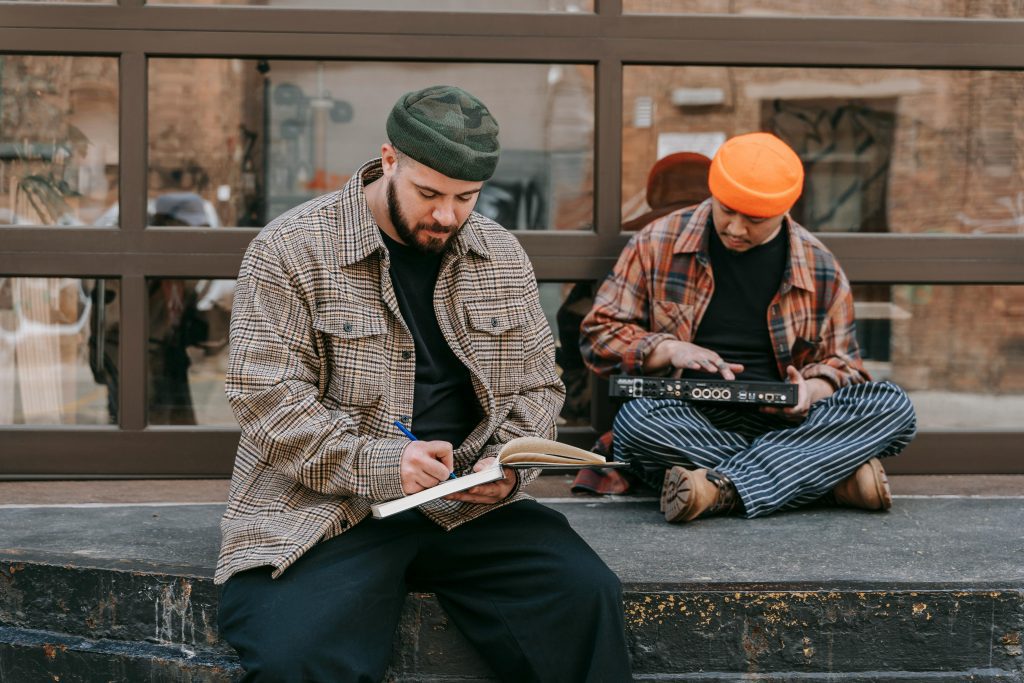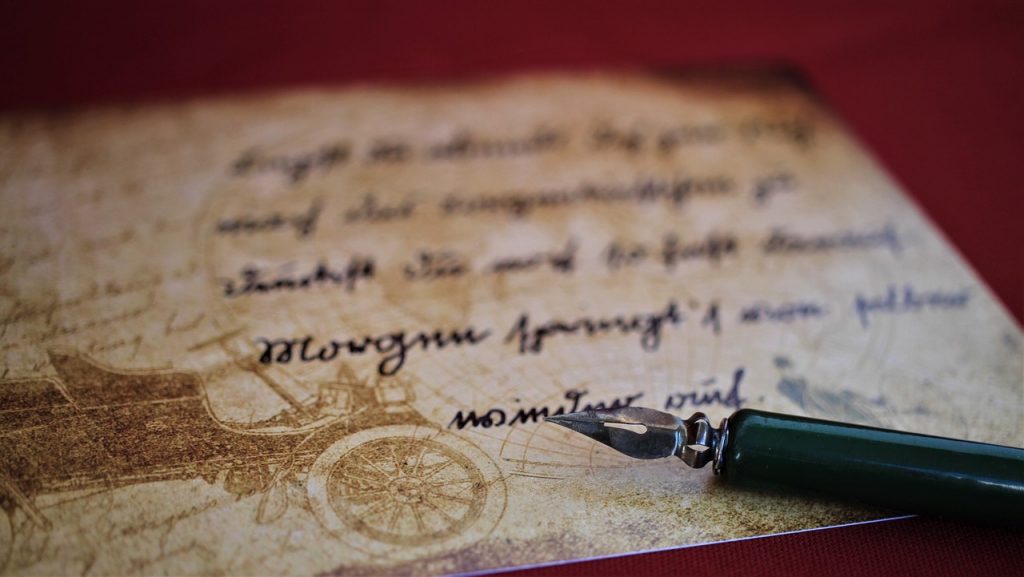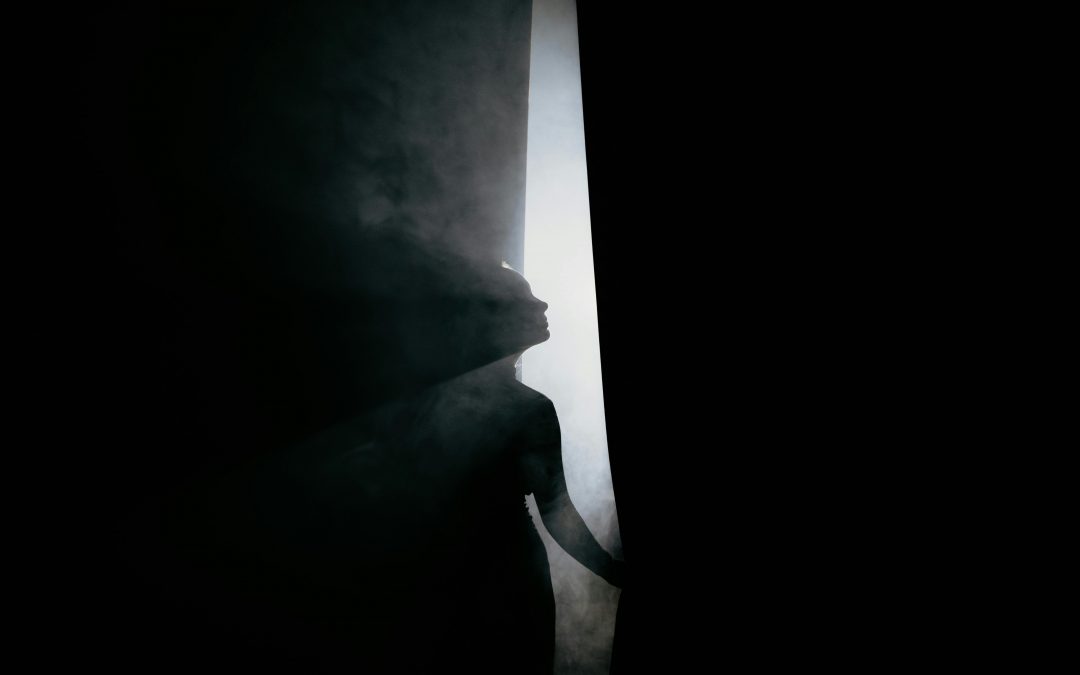Have you ever felt your words fall flat when sharing your poetry? Many spoken word artists struggle to captivate their audience, leaving their powerful verses unheard and underappreciated. The problem often lies not in the poetry itself, but in the delivery.
Enter the world of theatre. The stage has long been a place where words come to life, and it holds the key to transforming your spoken word performances. By borrowing techniques from actors and directors, poets can learn to command attention and stir emotions in ways they never thought possible.
Imagine standing before a crowd, your voice strong and clear, your body language enhancing every word. Picture your audience hanging on your every syllable, moved to laughter or tears by your performance. This is the power of blending spoken word with theatrical elements.
In this post, we’ll explore how the art of theatre can elevate your poetry from mere recitation to a captivating experience. Whether you’re a seasoned performer or just starting out, these insights will help you connect with your audience on a deeper level. Get ready to step into the spotlight and let your words shine like never before.

The Power of Performance: Bringing Words to Life
Poetry isn’t just about words on a page. When poets step onto the stage, something magical happens. Their words come alive, touching hearts and minds in ways that silent reading can’t match. This is the power of performance in spoken word poetry.
Think of a time you heard a song that gave you chills. Now imagine that feeling, but with poetry. That’s what happens when poets perform their work. They use their voices, faces, and bodies to add layers of meaning to their words. A whisper can make you lean in close. A shout can make you jump. A pause can leave you hanging on every word.
Spoken word poets are like actors, singers, and storytellers all rolled into one. They don’t just read their poems – they become them. They might use different voices for characters in their poems. They might move around the stage to show action. They might even use props or costumes to bring their stories to life.
This blend of poetry and performance creates a special connection between the poet and the audience. It’s not just about hearing the words – it’s about feeling them. When a poet performs well, you might forget you’re watching a show. You might feel like you’re right there in the story with them.
The power of performance turns poetry from something you read into something you experience. It’s a journey that takes both the poet and the audience to new places, turning words into unforgettable moments.

From Page to Stage: The Journey of Spoken Word
Spoken word poetry starts with a pen and paper, but its true magic unfolds on stage. This journey from written words to live performance is what sets spoken word apart from traditional poetry. It’s a path that many poets find both exciting and challenging.
At first, poets might write their pieces alone, focusing on the rhythm and flow of their words. But as they prepare for performance, they start to think about how their voice can bring those words to life. They practice different tones, speeds, and emphases to find what feels right.
Next comes the body language. Poets learn that a simple hand gesture or facial expression can add power to their words. They might pace the stage to build tension or stand still to drive a point home. Every movement becomes part of the poem.
Many spoken word artists start small, performing at open mic nights or poetry slams. These events give them a chance to test their work in front of an audience. They learn what makes people laugh, cry, or sit in stunned silence. With each performance, they grow more confident and skilled.
As poets gain experience, they might start to experiment with music, visuals, or even costumes to enhance their performances. What started as words on a page becomes a full sensory experience for the audience.
The journey from page to stage is different for every poet. But for all, it’s a process of bringing their innermost thoughts and feelings into the open, sharing them with the world in a way that’s uniquely powerful and personal.

The Power of Performance: Bringing Words to Life
When poets step onto the stage, something magical happens. Their words leap off the page and into the hearts of listeners. This is the power of performance in spoken word. It turns poetry from a solitary act into a shared experience.
A skilled performer can make you feel every emotion in their poem. They use their voice like an instrument, changing pitch and volume to create mood. A whisper might draw you in, while a shout could jolt you awake. The way they move on stage adds another layer of meaning. A clenched fist or a gentle wave can say as much as a line of verse.
But it’s not just about the poet. The audience plays a big role too. When a poem hits home, you might hear gasps, see nods, or feel the room go silent. This back-and-forth between poet and audience creates a unique energy. It’s like a conversation where the poem speaks and the audience answers with their reactions.
Performance also helps poetry reach new ears. Some people who wouldn’t pick up a poetry book might love watching a slam. The theatrical elements make poetry more accessible and exciting. It can tackle tough topics in a way that’s engaging and memorable.
In the end, performance breathes life into words. It turns poems into experiences that stick with you long after the show is over. That’s the true power of bringing words to life on stage.
Emotion in Motion: Using Body Language to Enhance Poetry
Words aren’t the only way poets speak on stage. Their bodies tell stories too. When poets use body language well, it’s like adding a silent soundtrack to their words. This mix of movement and speech can make poems hit harder and stick with you longer.
Think about how we use our hands when we talk. Now imagine that, but bigger and more purposeful. Poets might reach out when talking about connection, or pull back when describing fear. Their faces show the emotions in their words, from joy to anger to sadness. Even how they stand or move around the stage can say a lot. A tall, proud stance might show confidence, while hunched shoulders could mean shame or defeat.
But it’s not just about big movements. Sometimes, it’s the small things that pack the biggest punch. A slight tremor in the hands during an emotional part, or a slow blink at just the right moment can speak volumes. The key is finding the right balance. Too much movement can distract from the words, while too little might make the performance feel flat. When done right, body language turns a poetry reading into a full-body experience, making the words come alive in a whole new way.

The Audience Connection: Creating Shared Experiences
Poetry isn’t a one-way street. When poets perform, they’re starting a conversation with the audience. This back-and-forth creates a special kind of magic that you can’t get from just reading words on a page. It’s about building a bridge between the poet’s world and the listener’s heart.
Good performers know how to read the room. They pick up on the energy of the crowd and adjust their delivery to match. Maybe they’ll slow down if people seem lost, or pump up the volume if the audience is getting excited. Some poets even ask the audience to participate, like repeating a line or answering a question. This turns passive listeners into active parts of the show. When it works, it feels like everyone in the room is part of one big, shared experience. That’s the power of live poetry – it brings people together in a way that few other art forms can.

Finding Your Voice: How Theatre Helps Poets Develop Their Style
Theatre isn’t just for actors. It’s a goldmine for poets looking to find their unique voice on stage. By borrowing tricks from the world of drama, poets can turn their words into unforgettable performances.
One big lesson from theatre is how to use your whole body to tell a story. Poets learn that a simple hand gesture or facial expression can add power to their words. They discover how to move on stage with purpose, using space to create mood and meaning. Theatre also teaches poets to play with their voices, changing volume and speed to keep listeners hooked. It’s like adding spices to a dish – it brings out flavors you didn’t know were there.
But it’s not just about putting on a show. Theatre techniques help poets dig deeper into their own emotions. They learn to tap into personal experiences, making their performances more genuine and powerful. This honesty on stage helps poets connect with their audience in a real way. By mixing these theatre skills with their writing, poets create a style that’s truly their own. It’s a journey of discovery that turns good poets into great performers.
Beyond Words: Incorporating Visual and Audio Elements
Poetry is evolving beyond just words on a page. Many poets now use visual and audio elements to enhance their work. This creates a richer experience for the audience. Visual poetry combines text with images or objects. It turns words into art you can see. Some poets use sounds to add depth to their performances. They might include music or play with the sounds of words. Others incorporate movement, turning their poems into mini-performances. Technology has opened up new possibilities too. Poets can now use digital tools to create interactive poems. These might change based on how the reader interacts with them. In the UK, many poetry events now showcase these mixed-media approaches. They blend traditional poetry with visual art, music, and even dance. This new style of poetry engages more of our senses. It can make poems more memorable and impactful. By going beyond words, poets are finding fresh ways to connect with their audience.
The Future of Spoken Word: Blending Traditional and Theatrical Approaches
Spoken word is changing fast in the UK. It’s mixing old and new styles to create something fresh. Poets are using more than just words now. They’re adding movement, music, and visuals to their shows. This makes the poems come alive in new ways. Digital tools are opening up more options too. Poets can now reach people online, not just in person. Some are even using virtual reality to make their poems more immersive. These new approaches are helping spoken word reach more people. It’s not just for small poetry clubs anymore. Now, you might see spoken word at big theaters or art galleries. This growth is good for the art form. It’s helping spoken word get more respect in the art world. As it changes, spoken word is keeping its power to move people. It still talks about important issues and tells personal stories. The future of spoken word looks exciting, with lots of new ways to share poems.

Conclusion
Embrace the Stage: Your Poetry’s New Home. Now that you’ve seen how theatre can transform your poetry, it’s time to take the leap. Don’t let your powerful words stay trapped on the page. Use the tools we’ve talked about to bring them to life on stage. Start small. Practice using your voice and body to add meaning to your poems. Try out different movements or tones to see what feels right. Remember, it’s okay to feel a bit awkward at first. Every great performer started somewhere. Next, look for chances to share your work. Open mic nights are great places to start. They’re usually friendly and supportive. As you grow more confident, you might try poetry slams or even put on your own show.Don’t be afraid to experiment. Add music, use props, or create visuals to go with your words. The stage is your canvas – make it yours.Most importantly, keep writing and keep performing. The more you do it, the better you’ll get. Your unique voice will shine through, touching hearts and minds in ways you never thought possible.So go on, step into the spotlight. Your words have power, and the world is waiting to hear them. With these theatrical tools in your pocket, you’re ready to turn your poetry into unforgettable performances. The stage is set – it’s your time to shine.
FAQs
What is spoken word poetry? Spoken word poetry is a type of performance where poets bring their written words to life on stage using their voice, body language, and sometimes other elements like music or visuals.
How is spoken word different from regular poetry? Spoken word is meant to be performed live, while regular poetry is often just read silently. Spoken word uses voice, movement, and sometimes props to add extra meaning to the words.
Do I need acting experience to do spoken word? No, you don’t need acting experience. But learning some theatre skills can help make your performances more powerful and interesting.
What’s the best way to start doing spoken word? Start by writing your poems, then practice performing them at home. When you feel ready, try an open mic night where anyone can perform.
How important is body language in spoken word? Body language is very important. It can add extra meaning to your words and help the audience feel the emotions in your poem.
Can I use music or visuals in my spoken word performance? Yes! Many spoken word artists use music, images, or even dance to make their performances more interesting and powerful.
How do I connect with my audience during a performance? Pay attention to how the audience reacts. You can change your performance based on their energy. Some poets even get the audience to participate in small ways.
Is it okay to feel nervous before performing? Absolutely! Even experienced performers get nervous. It’s normal and can even help you perform better if you learn to use that energy.
How is spoken word changing with new technology? New tech is allowing poets to reach more people online. Some are even using virtual reality to create immersive poetry experiences.
Do I need special equipment to start doing spoken word? Not really. All you need to start is your voice and your poems. As you get more experienced, you might want to use a microphone or add other elements to your performance.

